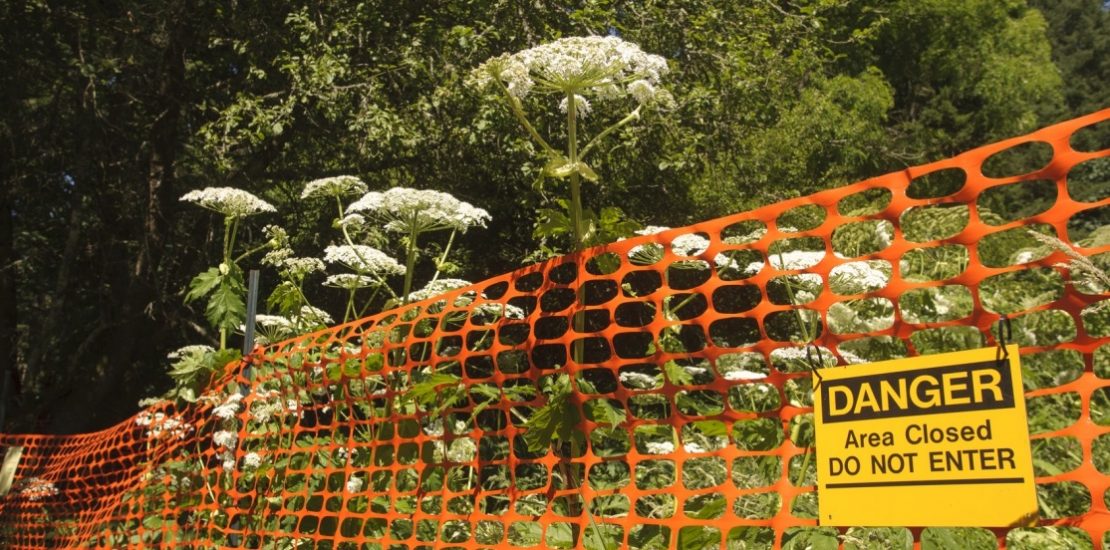Hot Topic: Invasive Non-Native Species Compliance
- February 10, 2017
- Posted by: admin
- Category: Industry News

Keeping abreast of legislative updates for ecologists and surveyors
Invasive non-native species and the law, regulations and policy in the UK and Ireland – a keep out of jail webinar.
The Chartered Institute of Ecology and Environmental Management (CIEEM) recently hosted a ‘keep out of jail webinar’ to update its members on invasive non-native species policy and best practice. The webinar was one of a new wave of CPD formats offered by CIEEM, helping their members improve their knowledge and skills and promote high standards in professional practice. Invasive non-native species are a frequently encountered and key component of an ecologist’s job whether whilst conducting a preliminary ecological appraisal or planning for biodiversity enhancement when preparing site habitat management plans.
Legal complexity; UK scheduled invasive non-native species are vast in number and diverse in genus and it is not surprising then that their control and spread is covered by multiple pieces of legislation in England (with variation to legislative acts in other regions as applicable).
EU Regulation (1141/2014) on Alien Invasive Species (IAS) lists 23 species of animal and 14 species of plant recognized as having the potential to cause adverse effects across the EU. First effective from January 2015 it looks likely that the list of species covered will be reviewed this year with more likely to be added given the complexities in species mobility.
The most well-known piece of legislation to cover invasive species is the aging Wildlife and Countryside Act 1981 (Schedule 9), though it is considered that this Act is limited in scope in that it merely prevents the spread of invasive non-native species in the wild rather than requiring the landowner to eradicate the problem. With this in mind the Infrastructure Act 2015 challenges that loophole. The infrastructure Act allows statutory agencies to devise Species Control Agreements (SCAs) whereby landowners with invasives present can voluntarily enter into a management plan for the species concerned to tackle in situ. However crucially the legislation also allows the statutory agency to enforce a Species Control Order (SCO) where a landowner refuses to enter into an SCA, breaches it or when it is deemed that action must be taken immediately to control the invasive.
That’s not all; whilst not specifically referred to in the following pieces of legislation, invasive non-native species may also be addressed under Common Law Nuisance (with a ‘nuisance’ being termed as something which can be defined as a matter which is an unreasonable and substantial interference on the use and enjoyment of a person’s property) as well as the Anti-Social Behaviour, Crime and Policing Act 2014. The latter allowing local authorities and the police to serve a Community Protection Notice against the offending individual or party.
LEGAL UPDATE: on 2nd February 2017 Cardiff County Court handed down a landmark judgment regarding knotweed deemed in this case as a ‘nuisance’. London based law firm Charles Lyndon on behalf of its client Robin Waistell successfully brought a claim against Network Rail Infrastructure Ltd. The judge found that the mere presence of knotweed on an adjoining property was capable of being a nuisance if it interfered with an individual’s ability to realise full market value for the property.
“In terms of damages, the judge awarded the cost of treatment plus residual diminution of value. This is an interesting case as the visible knotweed is all on Network Rail’s land and so treatment is not, without cooperation from Network Rail, possible. At the handing down of the judgment the judge stressed that his award presupposes that the treatment will take place and that if it does not this is a continuing nuisance and the claimants can come back before the courts and seek further damages (i.e. the full diminution with no effective treatment).” (www.CharlesLyndon.com)
Crucially; professional ecologists and environmental practitioner’s should strongly advise their clients that due diligence with regards to invasive species is essential, with a need to prove that all reasonable steps have been taken so to avoid committing an offence. An invasive species management plan is an important first step and Contract Ecology’s surveyors can assist you with this.
Give our consultants a call now on 01772 731404 to discuss tackling invasive non-native species on your site. For those that missed it, a recording of the CIEEM webinar can be found here: https://www.youtube.com/watch?v=DqyVfGuKbjk&feature=youtu.be